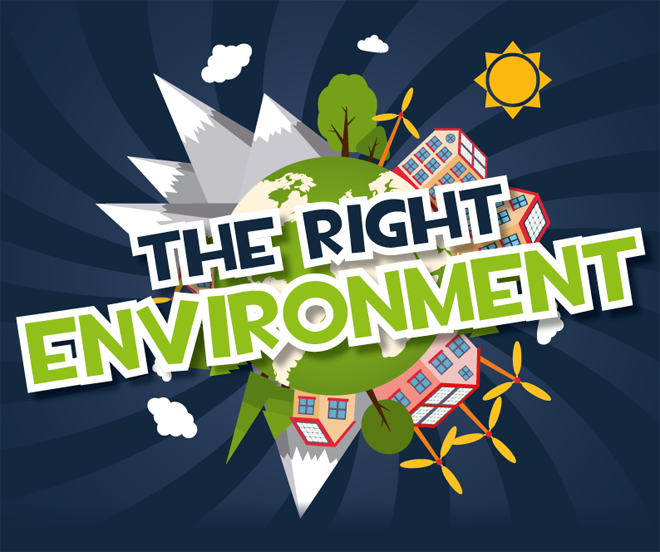
Are you passionate about the environment? Want to make a difference in your career? Why not undertake Environmental Sciences or Environmental Science Studies?
BY MELISSA SNOW
Gaining qualifications and pursuing careers within the environmental sector is becoming increasingly popular amongst young people with a concern for the world they are growing up in and its future. Environmental Science involves making judgements on issues we need to solve – climate change nuclear power, acid rain, pollution, land use, foods, endangered species and much more.
If you’re interested in Science and know you’re skilled in this area, taking a degree in Environmental Sciences could be a good choice. This concentrates on scientific areas, specialising in natural resources, climate change and restoring natural ecosystems. The course focuses on practical work, giving you a “hands on” experience in laboratories. Expect to get your hands dirty – you’ll be taken on various field trips and into the environment as much as possible to develop your practical skills.
But if you’re more interested in politics and the economy, an Environmental Studies degree may be a better choice. This focuses on environmental problems and their solutions – involving social aspects, politics and the economy. Environmental Studies will give you a systematic but also a social understanding of environmental problems, taking into account government, businesses and social organisations. This course is ideal for individuals who love debating and are keen to learn about problems within today’s society, but don’t wish to study a Science-based course.
It all sounds pretty promising, right? So, how can you be part of this?
Depending on the specific course you choose, one or two A-levels in science subjects, and sometimes an A-level in Geography, will be required. Basic GCSEs are also required, with grades C or above. But it’s worth considering your own strengths and searching for your perfect course. Universities offer courses from combined Environmental Science and English to Marine Environmental Studies and each course is unique.
However, university doesn’t appeal to everyone so it’s good to know that there are other options out there.
BTEC Level 2 and 3 Extended Diplomas are great for those who have GCSEs and a passion for learning about Environmental Science related courses. And even better - you don’t need to be 18! You can start studying as soon as you’re 16. BTECs are for those who wish to study in a hands-on way and are an alternative to studying 3 A-level subjects.
One example of such a course focuses on Marine Biology and the environment. If you don’t want to undertake exams, but want to gain valuable skills in a marine environment, Falmouth Marine School could be worth considering. Falmouth Marine School is one of the largest aquatic teaching facilities in the UK, with tank systems containing sharks, coral, octopus and more. All of the courses here give you the skills to develop a career in this area, and many courses also offer brilliant work experience opportunities.
The school is also closely partnered with Cornwall College and Duchy College who offer courses specialising in different Science areas. For example, Duchy College offers a brilliant course in Agricultural Science, aiding you with skills in farm management, machinery operations and animal care. You could then go onto science-based jobs in medicine, food production and so on.
 But what about career choices? Thinking about jobs and what to do after you qualify can be fairly tricky. A degree in Environmental Sciences opens doors to a wide range of job opportunities. After completing their degrees, 20% of graduates go on to work as conservation or environmental professionals in the UK. Figures show that approximately 62% of graduates immediately go into employment whilst 17% undertake further studies.
But what about career choices? Thinking about jobs and what to do after you qualify can be fairly tricky. A degree in Environmental Sciences opens doors to a wide range of job opportunities. After completing their degrees, 20% of graduates go on to work as conservation or environmental professionals in the UK. Figures show that approximately 62% of graduates immediately go into employment whilst 17% undertake further studies.
Jobs directly related to environmental degrees include environmental consultancy, management, nature conservation, waste management and scientist-based jobs. However, a degree in Environmental Sciences is also useful in jobs like architecture, town planning and in the health sector.
If you’re interested in solving environmental issues, Environmental Consultancy or Management could be for you. Typical graduate starting salaries are around £18,000, but at a senior level can increase to £50,000 per year. In Environmental Consultancy or Management, you would be working on solving environmental issues, such as pollution, waste, recycling, and renewable energy.
However, there are many more specific jobs within the environmental sector which could appeal to those with particular interests. Jobs in waste management could involve working with land fill sites, focusing on recycling and efficient waste disposal. Salaries range from £21,900 to £45,000. Jobs in architecture or town planning would involve working on a wide range of projects, making plans involving development of towns and cities. Managers within this sector can earn up to £80,000 per year.
So, if you have a passion for the environment and want to help solve issues facing the world today, it’s well worth checking out the wide range of opportunities available to you. Discover more about environmental studies, including how to do an apprenticeship in conservation.
 Moving On magazine Careers and Qualifications for School Leavers
Moving On magazine Careers and Qualifications for School Leavers




 A New Sparta Group Company
A New Sparta Group Company